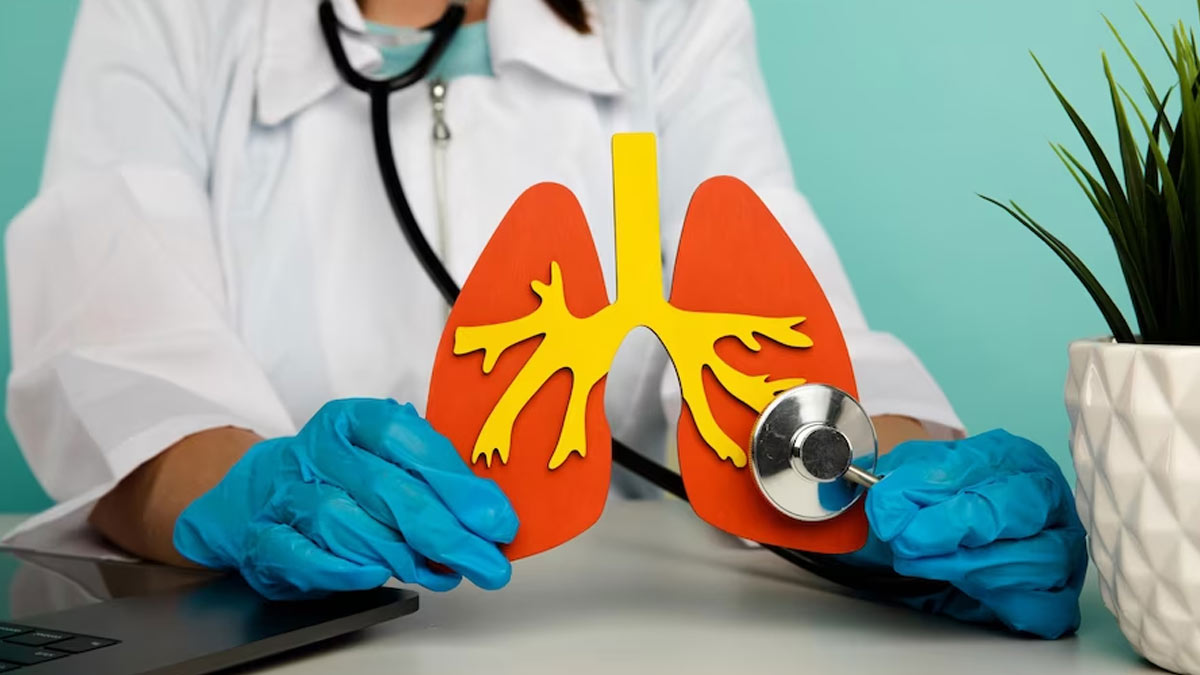
Do you know what happens when fluid builds up in lungs? The condition you are suffering might be pulmonary edema. Pulmonary edema is a condition characterised by excess fluid in the lungs. This fluid collects in the numerous air sacs in the lungs, making it difficult to breathe. In some instances, this condition can be life-threatening and requires immediate medical attention.
Table of Content:-
“In the majority of cases, cardiovascular issues cause pulmonary edoema. Other causes of fluid accumulation in the lungs include pneumonia, exposure to certain chemicals and drugs, and chest trauma. The causes of pulmonary edoema differ. Pulmonary edoema is classified into two types based on where the disease started. Cardiogenic pulmonary edoema occurs when pulmonary edoema is caused by a cardiac issue. The majority of fluid collection in the lungs is caused solely by a cardiac issue,” said Dr Tinku Joseph K, Chief of interventional Pulmonology, Pulmonary medicine, Amrita Hospital, Kerala. Understanding the symptoms, causes, and potential remedies is crucial for prompt treatment and management.

Symptoms
According to Dr Joseph,, the symptoms of pulmonary edema can vary depending on the cause and severity of the condition but often include:
- Difficulty breathing or shortness of breath, especially when lying down
- Feeling of suffocating or drowning (more severe at night)
- Wheezing or gasping for breath
- Anxiety and restlessness
- Coughing up pink, frothy sputum
- Excessive sweating
- Pale skin
- A blue or greyish tint to the skin, lips, or nails (cyanosis) due to lack of oxygen
Also read: Yoga For Lungs: Try These Asanas To Clean Your Lungs
Causes Of Fluid Buildup In Stomach
Pulmonary edoema can be caused by heart-related issues (cardiogenic pulmonary edema) or other factors (non-cardiogenic pulmonary edema):
Cardiogenic Causes
Left-sided heart failure (the most common cause): The left ventricle is unable to pump blood efficiently, leading to pressure build-up in the lungs.
- Coronary artery disease
- Cardiomyopathy
- Hypertension (high blood pressure)
Non-Cardiogenic Causes
- Acute respiratory distress syndrome (ARDS)
- High altitude exposure
- Pneumonia
- Kidney failure
- Exposure to certain toxins and medications
- Severe infections
Remedies and Treatment
Treatment for pulmonary edema focuses on improving respiratory function and treating the underlying cause of the condition. Immediate remedies and long-term treatments include:
Immediate Remedies
According to Dr Joseph, breathing difficulties necessitates prompt attention and additional therapy. The doctor establishes a preliminary diagnosis of pulmonary edoema based on your symptoms, physical exam, ECG, and chest X-ray. To ensure the body gets the oxygen it needs. Sitting up can help reduce the pressure in the lungs and make breathing easier.

Treating the Underlying Cause
Managing heart conditions: Treatment for conditions such as heart failure may include medications, lifestyle changes, or surgery, depending on the severity.
Addressing non-cardiogenic causes: If the pulmonary edema is due to factors other than heart problems, treatment will focus on addressing those specific causes.
Preventive Measures and Management
Manage underlying health conditions like hypertension and diabetes. Monitor fluid intake if advised by a doctor, especially in cases related to heart failure or kidney problems.
Avoid high altitudes if susceptible to altitude-induced pulmonary edema or take preventive measures if ascent is unavoidable. Regular monitoring for those with chronic conditions that could lead to pulmonary edoema.
Also read: Lung Health: 7 Different Ways To Know Your Lungs Are Functioning Properly
Pulmonary edema is a serious condition that requires prompt medical attention. Recognizing the symptoms early and understanding the causes can significantly improve outcomes through early treatment and management. Lifestyle modifications, adherence to treatment plans for underlying conditions, and regular medical check-ups are vital in preventing recurrence and ensuring overall well-being. If you suspect you or someone else is experiencing symptoms of pulmonary edema, seek immediate medical care.
Also watch this video
How we keep this article up to date:
We work with experts and keep a close eye on the latest in health and wellness. Whenever there is a new research or helpful information, we update our articles with accurate and useful advice.
Current Version